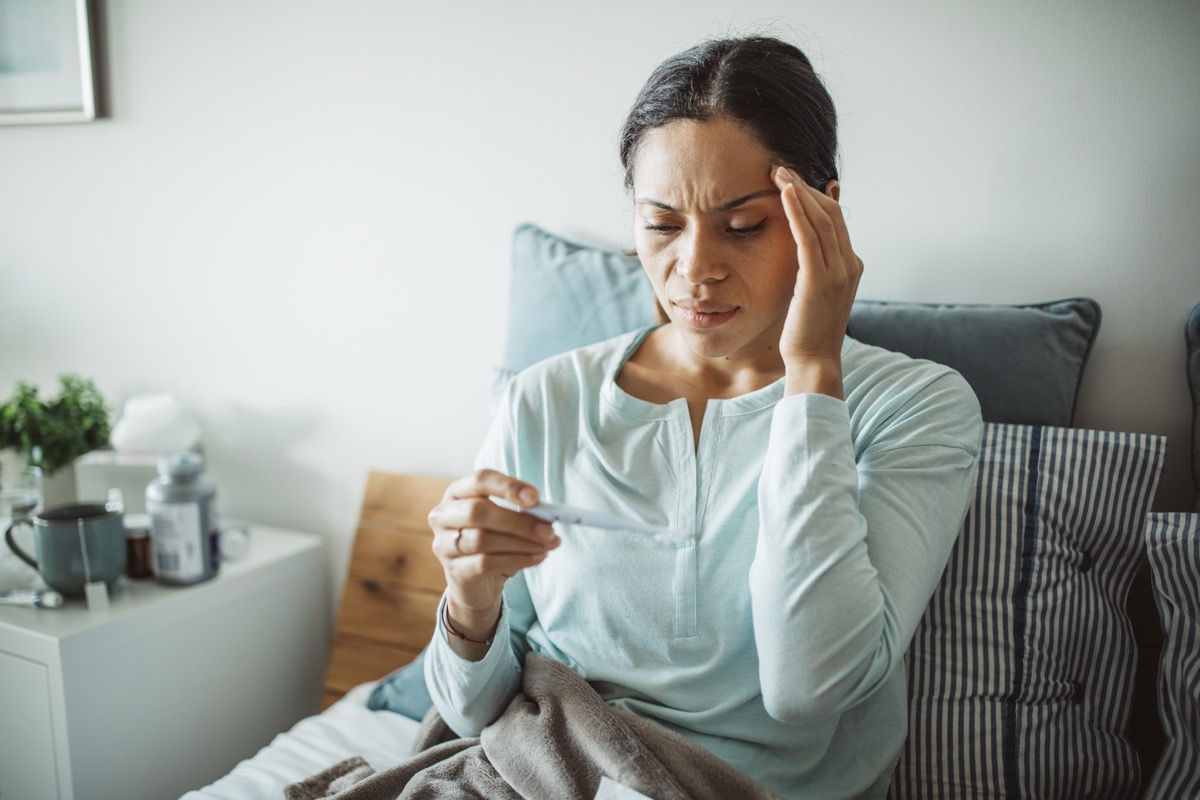“Obviously the early symptoms of COVID-19 disease are very similar to a flu-like syndrome,” Fauci said. But there’s one factor in particular that distinguishes the two viruses: anosmia, the loss of smell. While this was not originally thought of as a coronavirus symptom, Fauci said that “many people now have this curious loss of smell and taste,” when infected with COVID-19. Indeed, according to a study out of University College London published in October, 80 percent of COVID patients exhibit a loss of smell, making it one of the strongest indicators you have the virus before you even get tested. “Our findings show that loss of smell and taste is a highly reliable indicator that someone is likely to have COVID-19,” Rachel Batterham, MD, study leader from University College London and University College London Hospitals, said in a statement. “People who notice a loss in their ability to smell every day household odors such as garlic, coffee, and perfumes should self-isolate and seek PCR testing.” Fauci listed five other “tell-tale” signs you could be coming down with the virus. “If any of [the following] symptoms appear, people should be careful,” he said. “Stay home, try to get tested if you possibly can to know whether or not you’re infected.” He reiterated that “the best thing to do is stay home,” warning that it’s “better [to] be careful now and look forward to many, many more [holidays] in the future than endangering yourself or a vulnerable member of your family or friends.” Read on for the other COVID symptoms Fauci said to look out for, and for more on how to tell if you have the virus, check out If You Can’t Smell These 2 Things, You May Have COVID. Read the original article on Best Life. While Fauci called out a fever as one obvious sign, he warned that it is not a fail-safe indicator. “I don’t think you need to rely on fever—that if you don’t have a fever, you’re OK. Because plenty of people in the very early period of time don’t have fever,” Fauci said. And for more recent COVID developments, check out These Are the COVID Vaccine Side Effects Doctors Are Worried About. The second subtle sign? “Something like a sore throat, kind of a scratchy feeling,” Fauci warned. A sore throat is listed by the CDC as one of the main symptoms of COVID-19. An early report out of China found that nasal congestion was present in just 4.8 percent of COVID-19 patients, but Fauci said “some fullness in your upper airway” could be a sign that something is brewing. And for more regular coronavirus updates, sign up for our daily newsletter.ae0fcc31ae342fd3a1346ebb1f342fcb Muscle aches are another key sign of COVID, especially in conjunction with the other symptoms. A self-organized group of coronavirus patients in the Body Politic COVID-19 Support Group conducted a survey on the range of symptoms they were experiencing. Their findings showed that 83.5 percent of patients experienced body aches of some kind. Fauci advised people to be vigilant and not ignore possible warnings from their body, including fatigue, which can easily be chalked up to other issues. “If someone comes in and says, ‘You know I kind of feel bushed today… I feel a little achy,’ that’s a tell-tale sign,” he said. And for more on the latest with COVID-19 in your area, find out How Bad the COVID Outbreak Is in Your State.
